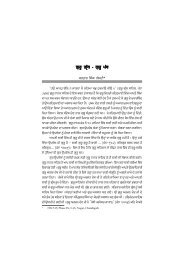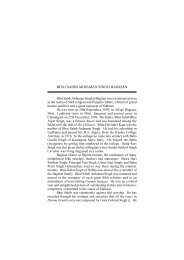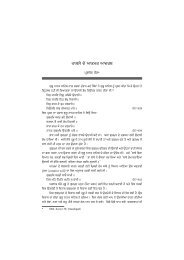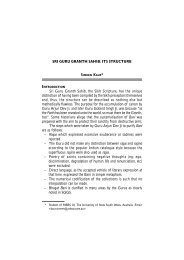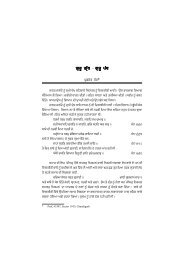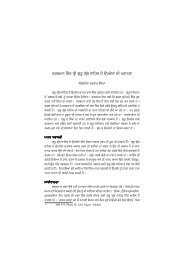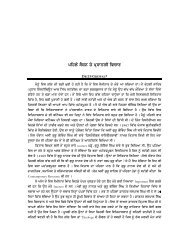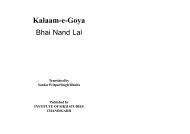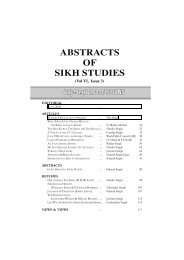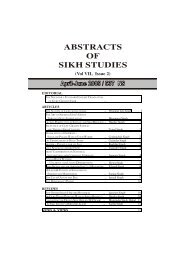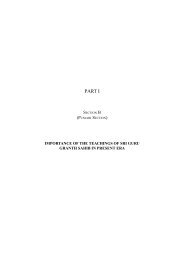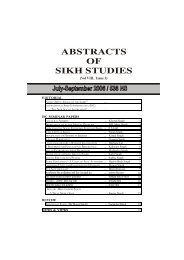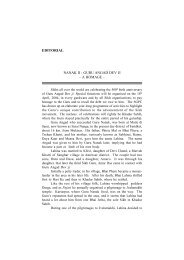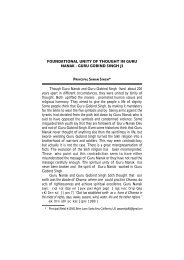You also want an ePaper? Increase the reach of your titles
YUMPU automatically turns print PDFs into web optimized ePapers that Google loves.
60ABSTRACTS OF SIKH STUDIES : JAN-MARCH <strong>2006</strong> / 537-38 NSonly a denigration <strong>of</strong> Jainism, Buddhism and Sikkhism but also anaffront to the status <strong>of</strong> Islam and Christianity and “Other Religions”which are recorded in every Census.Having wandered through philosophy and religion, Mr JusticeDharmadhikari propounds his constitutional thesis for redefining thestatus <strong>of</strong> various religious groups as minorities and conferring it onlyto those which had to be re-assured <strong>of</strong> their religious and culturalrights in the background <strong>of</strong> Partition “in order to maintain the integrity<strong>of</strong> the country”. He opines that the process <strong>of</strong> the Constitution didnot contemplate any addition to the list <strong>of</strong> religious minorities otherthan those identified in the course <strong>of</strong> independence negotiations orthose which are materially well-<strong>of</strong>f.He seems to think that recognition <strong>of</strong> the religious identity <strong>of</strong> agroup by the State is a favour, a privilege, a prerogative <strong>of</strong> the executiveor the legislature in accordance with the political compulsion at a giventime. Obviously, he has not studied the Constituent Assembly Debates.Dr Ambedkar forcefully argued for the recognition <strong>of</strong> the absoluterights <strong>of</strong> the religious minorities. And the first right <strong>of</strong> a minority isthe right <strong>of</strong> recognition, followed by the right to equality before law.The Fundamental Rights, the finest crystallization <strong>of</strong> political thoughtand constitutional theory, are independent <strong>of</strong> time and place. TheUniversal Declaration <strong>of</strong> Human Rights had an impact on ourConstitution but the International Covenants and, above all, the UNDeclaration <strong>of</strong> Rights <strong>of</strong> Minorities, 1993, all reflect what theConstitution gave to the religious, linguistic, racial and culturalminorities. Today minority rights are universally accepted as indivisiblefrom and essential to human rights, because almost every nation-stateis multi-religious, multilingual and multicultural.But Mr Jutice Dharmadhikari sees assimilation in Hinduism asthe alternative and desirable goal <strong>of</strong> religious groups in India whilethe international community recognises multi-religiosity as the naturalstate <strong>of</strong> things. Any majoritarian pressure to erase the identity and toabsorb and assimilate their distinctive personality goes against theconcept <strong>of</strong> freedom and equality.Constitutional safeguards under the Constitution and ininternational law shall be reduced to zero if the distinct identity <strong>of</strong>any religious group, howsoever small, is denied and any group is forcedto relate to Hinduism as a sect or sub-sect.¤



